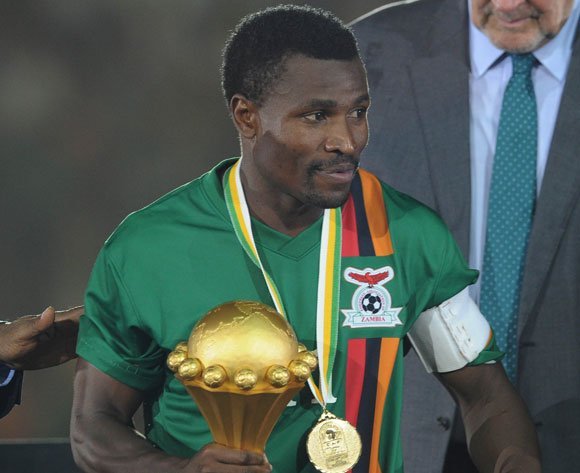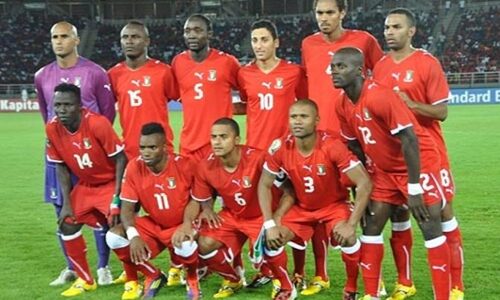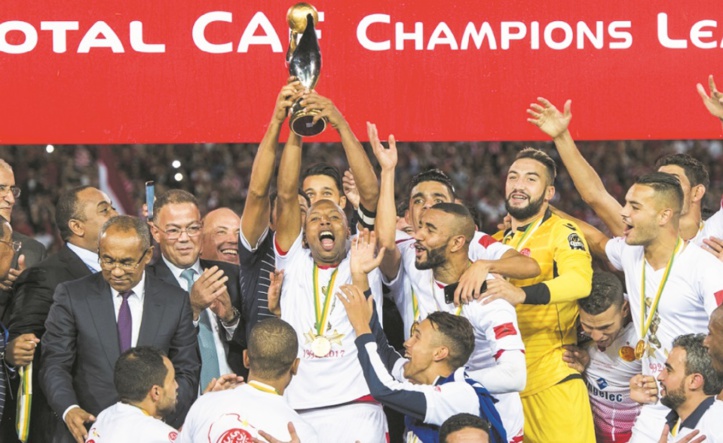2012 was supposed to be Ivory Coast’s year in African football. Les Éléphants had a squad that was capable of making their opponents tremble before even stepping onto the field. Their three-man frontline featured Gervinho, Salomon Kalou, and of course the incomparable Didier Drogba. Yaya Touré pulled the strings from the midfield, while his brother, Kolo, and Didier Zokora smoothly cut out any attacks from the opposition. The late Cheick Tioté was one of the fiercest tacklers in world football. After two disappointing World Cup exits in 2006 and 2010, as well as a failure to win the Africa Cup of Nations in that period, the 2012 Africa Cup of Nations was a must win for the Ivorians and their “Golden Generation.”
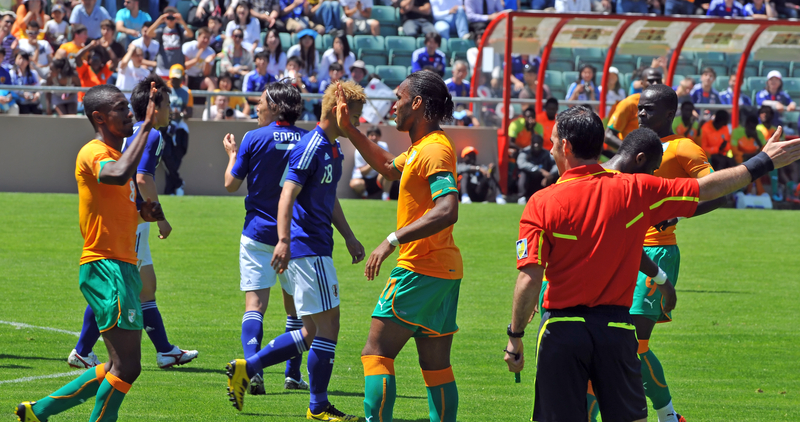
Salomon Kalou and Didier Drogba: Two of Ivory Coast’s elite attackers
For their opponents in that year’s final, Zambia, this particular tournament had a special significance. In 1993, the Chipolopolo (‘Copper Bullets’) were a rising side not only in Africa, but in all of international football, having handily defeated a shocked Italy 4-1 in the 1988 Olympics in Seoul. However, a flight carrying the team to a World Cup qualifier in Senegal crashed off the coast of Gabon, tragically taking the lives of all on board. Nearly twenty years later, the Africa Cup of Nations tournament was being held in Gabon and Equatorial Guinea, only miles from the crash site. The Chipolopolo went to a Gabonese beach after qualifying to lay wreaths and honor the victims. While Ivory Coast saw this match as a way to shed its reputation of failing at the last hurdle, this final meant absolutely everything to Zambia.
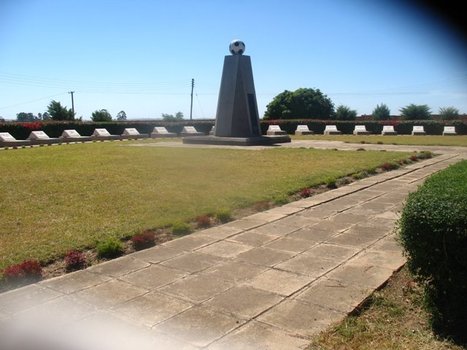
Heroes’ Acre: The resting place of the victims of the 1993 plane accident just outside Independence Stadium in Lusaka.
Zambia came out strong from the opening whistle of the tournament. A two goal barrage in the first twenty minutes sealed victory against Senegal, and a stingy 1-0 shutout against co-hosts Equatorial Guinea cemented their status as the group winners. A decisive victory in the quarter-finals against Sudan set up a semi-final against favorites Ghana. The Black Stars attacked and created plenty of chances, but the Chipolopolo goal seemed to have a force field around it. Goalkeeper Kennedy Mweene continued his fantastic tournament by stopping an Asamoah Gyan peanlty kick. Chipolopolo held strong until a special moment in the 78th minute made all the difference. Emmanuel Mayuka collected a pass on the edge of the penalty area, then made a subtle fake that gave him just enough space to curl a perfect effort off the far post and into the net. Zambia’s spot in the final was booked.
With so much at stake, the final was a tense affair. Ivory Coast were massive favorites and had not conceded a goal for the whole tournament. The Chipolopolo were not deaf to the fate the oddsmakers predicted. Full-back Joseph Musonda told me the team knew that everybody was saying that Zambia should not even bother showing up. The odds became even longer when Musonda, designated to keep track of Ivorian star Gervinho, was forced to limp off in the 12th minute when his ankle awkwardly caught in the turf on a sliding challenge. His exit was an emotional scene with great sportsmanship shown from both sides.
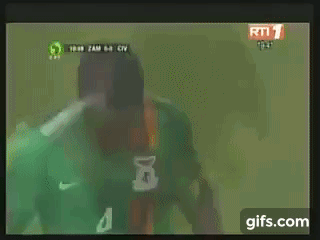
Zambia, once again, stayed resilient and did well to keep Ivory Coast from opening the game up. Stoppila Sunzu marshaled the back line and Mweene stayed steady to keep it scoreless at halftime. Chipolopolo kept the Ivorians honest by creating some chances of their own and the match remained up for grabs. The first moment of truth came in the 69th minute. Gervinho snuck in between two defenders and went down in the box to draw a penalty kick. Didier Drogba stepped up, ready to seal his maiden Africa Cup of Nations triumph…
Except things didn’t go as planned. Drogba was left in disbelief, desperately blaming the pitch for his misfortune. The momentum had been edging towards Zambia’s favor the longer they kept the score 0-0, but this moment deflated Ivorian morale. The teams played to a scoreless draw and were deadlocked through 30 minutes of extra time. It was now time for penalty kicks. The teams performed flawlessly from the spot, with 14 consecutive makes. However, now that it was later in the order, the more hesitant players had to take their shot. After each side missed, the man who always avoided penalties, Gervinho, had to take his turn, and his miss allowed Stoppila Sunzu to send Zambia into a state of delirium:
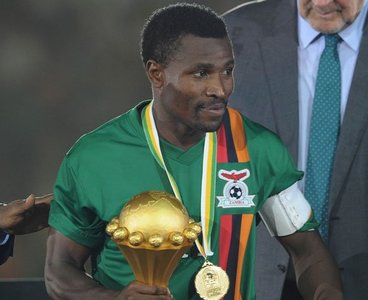
Christopher Katongo: The 30-year-old won Player of the Tournament and BBC African Footballer of the Year in 2012.
It was truly a story that defied all expectations. Manager Hervé Renard, a Frenchman who wasn’t shy to show off his charisma and intensity, carried the injured Musonda to join the celebrations. The side was unfancied, but the class was evident on the field. Stoppila Sunzu and Musonda epitomized the sturdiness of the defense. No goalkeeper had the confidence of Mweene. Christopher Katongo, the player of the tournament, was equally comfortable creating or scoring goals. Mayuka would go on to earn a transfer to English Premier League side Southampton because of his three goals in the tournament. 2012 was supposed to be Ivory Coast’s year, but the Chipolopolo finally gave the proud, football loving nation of Zambia its turn in the spotlight.



